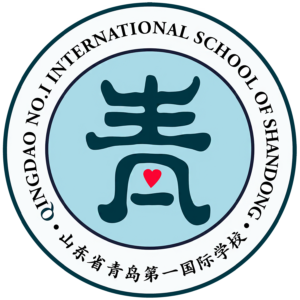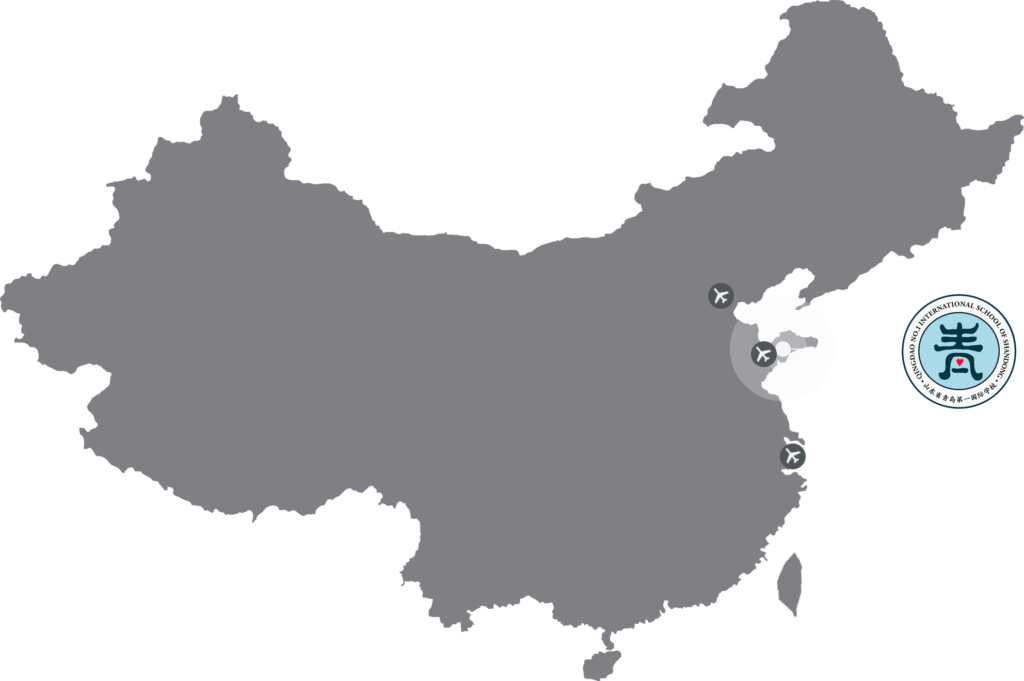Deciding which school to attend is a big decision as it frequently directly influences the child’s quality of life and future career. Students can receive a quality education in traditional national schools, but this education is often uniform and lacks concentration, denying students the chance to develop their abilities and potential fully. Instead, they restrict them to familiar settings and standard subject matter.
International schools in China are frequently chosen by kids who want to take control of their educational path from an early age and want to continue their education outside of their home country. Everyone can benefit from attending an international school, no matter their age.
People who are at the age where they must make decisions regarding their future careers, living situations, and places to work and study would particularly benefit from it.
Let’s see what qualities make international schools a better fit for your child.
7 Key Characteristics of International Schools for Global Education
1. Academic Excellence

No matter where they are, international schools are focused on teaching certain foreign curricula in English. International schools have a comprehensive curriculum that allows students to tailor their knowledge. Students have the option to opt for other activities besides their core curriculum, like creative writing, sports, or performing arts, to increase their learning scope in other fields as well.
Students can expand their views and distinguish themselves at academies by excelling in the social sciences and traditional STEM topics in this way. Such educational programmes are renowned for producing adaptable, complete graduates who thrive and develop into good candidates for admission to prestigious overseas universities. Students can readily change their academic surroundings because foreign programmes are widely accepted.
2. Multilingual Environment
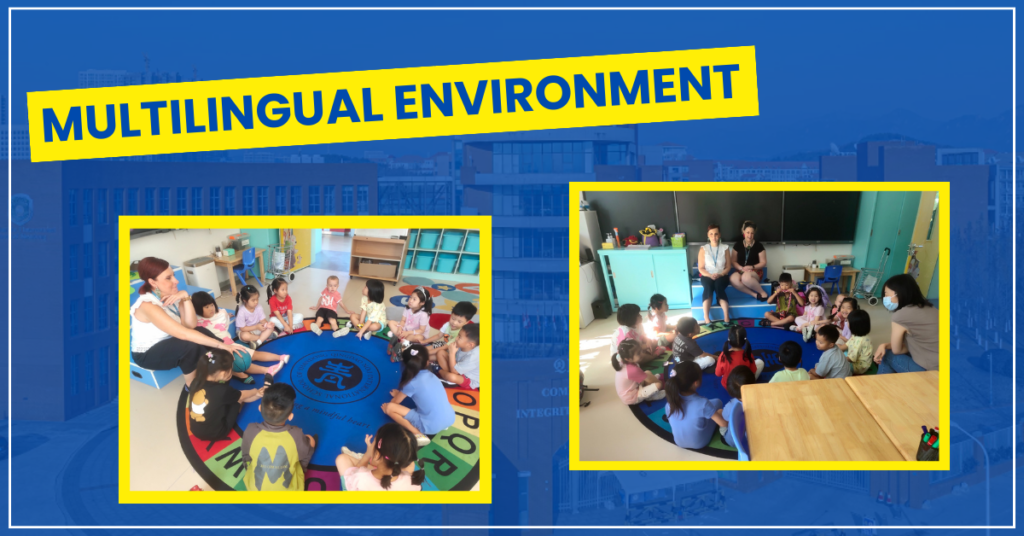
In addition to the two primary languages used in the classroom and in the student’s home country, an excellent international school will offer a bilingual atmosphere and a wide range of additional languages for students to study.
International schools offer exceptional chances for language skill development because classes are taught in English. French, German, and Spanish, and less common languages like Japanese, are among the other languages taught at these schools.
Additionally, teaching Mandarin is required in international schools. The language instructors at top international schools ensure that the kids learn best in small groups and are native speakers of their respective languages.
It lets expats improve their communication abilities, better understand the culture, and adapt to Chinese society. It also ensures that Chinese students who enroll in an international class or school will stay caught up in Chinese history and geography studies because these subjects are required.
The multicultural setting of an international school is one of its biggest benefits. Students learn about many cultures, which helps them with the familiarity from different cultures, characteristics, and norms. It also helps them with the feeling of empathy, respect for each other, increased tolerance, and information about goals, intentions, and values.
Additionally, students learn empathy, respect for one another, tolerance, and a knowledge of the intentions, goals, and values of others.
Citizens of the world who will readily feel at home everywhere are shaped by such environments.
3. International Faculty

An intentional teacher works on ways to get students involved in active learning in the classroom. An intentional teacher monitors how pupils are reaching the standards of the established child development milestones while focusing on individual strengths and problems.
Although the purposeful teaching approach is frequently associated with early childhood development, it can be used at all educational levels.
4. Inquiry-Based Learning
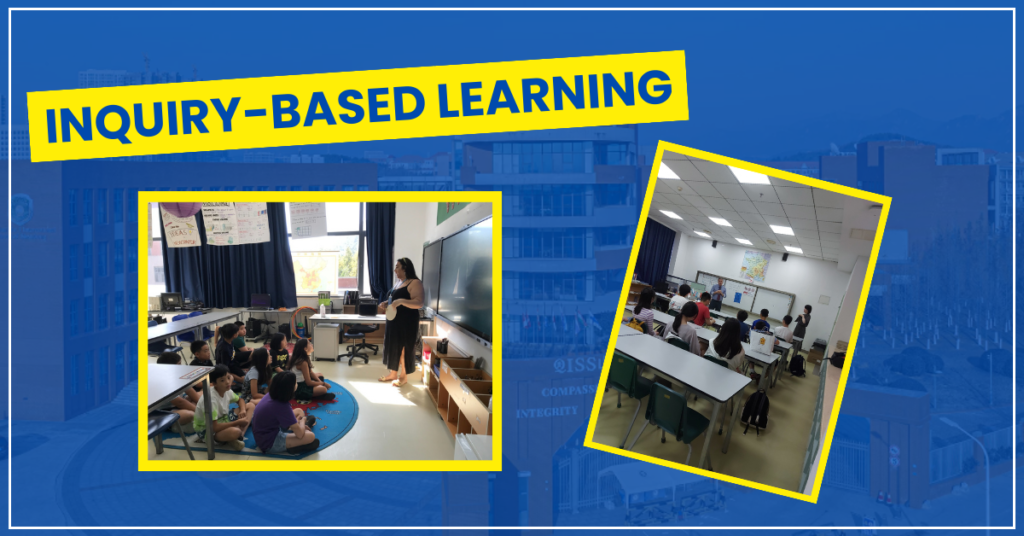
The world around them intrigues and worries children greatly. Fostering children’s innate curiosity, building on it, and teaching them how to ask questions is one of the most important things International schools do. If encouraged and developed, this might result in a generation of kids who are curious about the world and interested in inquiry-based learning.
The foundational critical thinking and problem-solving abilities are taught in international schools as early as preschool and pre-kindergarten through inquiry-based learning.
QISS is one of the best international schools in China’s Shandong Province. QISS is known for its excellent inquiry-based learning program modules, which help students meet the challenges in a rapidly evolving world. Their focus on inquiry-based learning is to move past the collection of data and information and towards creating meaningful and usable knowledge.
They emphasise “how we learn” more than “what we learn,” with pupils actively creating their knowledge. The emphasis switches from a content-driven approach to skills that enable people to learn independently.
To assist the students in becoming inquiry-based learners and discovering how to never stop learning, QISS nurtures and develops their innate curiosity.
5. Student-Teacher Ratio
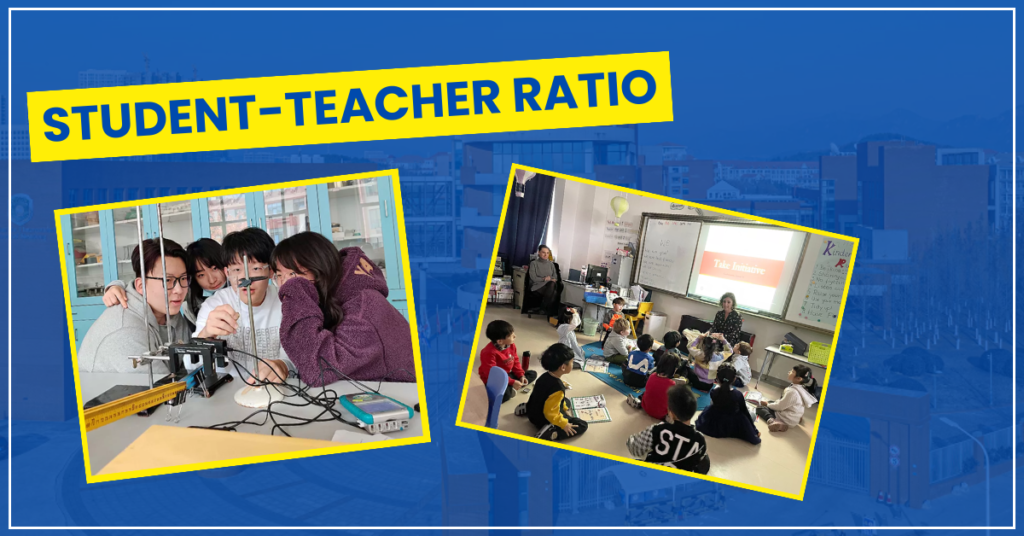
Top international schools will offer reduced class sizes for better interactions between teachers and students. In addition to the professors being able to contact a smaller group of students directly and fostering a better learning environment, the students are also better able to ask pertinent questions of the teachers and receive more insightful responses.
A professor teaching a large class needs to generalise the material and have a more elementary understanding of the subjects. While this method of instruction is effective, it could pique the students’ attention less and prevent them from expanding their knowledge on more niche subjects.
However, with smaller classrooms, the instructor may better assess the group’s development and adjust the curriculum to give more emphasis to challenging subjects. The pupils are better equipped to advance by adequately understanding the requirements of a small class.
6. Parental Involvement
Parents help with their children’s physical and emotional care, which helps enhance their learning skills in the educational field. Strong relationships between parents, teachers, and administrators are encouraged at international schools.
They encourage parents to get to know their children’s instructors and participate in open houses, parent-teacher conferences, and other school events. Understanding a student’s intellectual and social development requires open communication between the home and school.
Teachers and administrators can benefit greatly from parents’ knowledge of their child’s needs and abilities. To involve parents in the decision-making process of the educational system, international schools invite them to board meetings, ask them to volunteer, and give their advice.
Parents are encouraged to participate in their child’s education by attending school functions, including sporting activities, plays, and concerts. They can do this to support their child’s education and communicate with other parents, teachers, and administration. Parents also offer insightful comments and suggestions that help to shape the educational system.
7. Summer Camps and Outdoor Activities

Students in international schools have a wide range of extracurricular chances to learn new things and get new experiences. International schools can provide a range of academic excursions throughout the year, whether they be to nearby locales or even abroad.
The schools highly value these trips because they provide significant experiences outside of the classroom that are very beneficial for student team development. Students are unlikely to get access to these opportunities in a regular educational context.
International schools strongly promote physical fitness, good lifestyles, and school trips. In addition to joining sports teams to compete against other schools, students can choose from various recreational sports to suit their interests.
Top international schools frequently give students a choice of more than 30 sports. Non-competitive sports allow students to experience various activities and hone their skills in a friendly and encouraging environment.
Which is the Best International School in Qingdao Shandong Province, China?
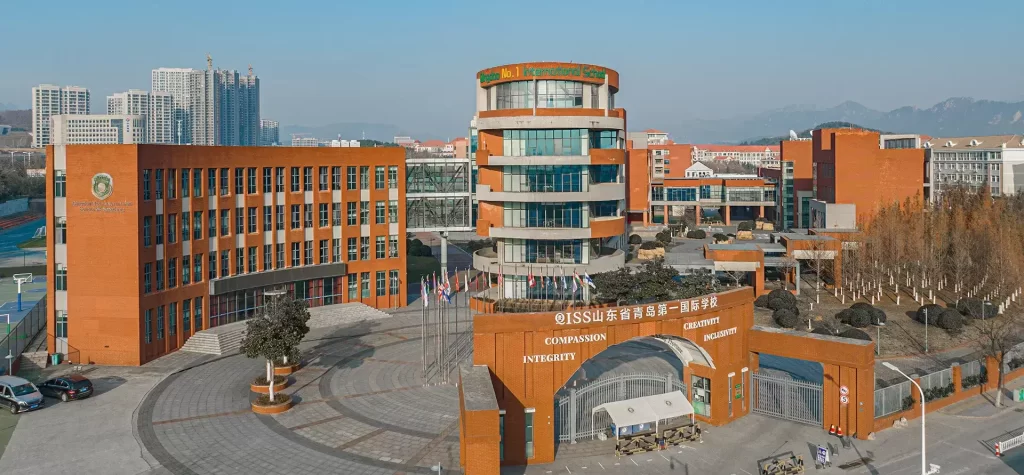
QISS is the best international school in Qingdao Shandong Province, China. The stunning Laoshan mountain range surrounds the 48,000-square-metre campus of QISS. The state-of-the-art, contemporary facilities on the QISS campus assist their students’ academic, social, and athletic growth. They hope to bring out the best in each child and give them the freedom to pursue and discover various interests by offering a wide range of facilities.
QISS offers a well-rounded education that goes beyond textbooks and has a reputation for excellence. Their teachers use cutting-edge teaching techniques to cultivate a passion for learning and the capacity for critical thinking in students. Its cutting-edge facilities offer an environment that is favourable for development and exploration.
Their dedication to promoting diversity and cultural understanding is what makes QISS unique. Together, students from many countries and continents build vibrant experiences and viewpoints. Due to the international atmosphere, students can flourish in an interconnected world and become tolerant global citizens.
Their all-encompassing approach guarantees that students achieve academic success and acquire critical life skills.

